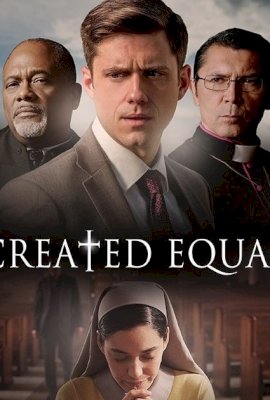Created Equal (2017)
A young, ambitious attorney with a cocky attitude reluctantly takes on a groundbreaking case to sue the Archdiocese of New Orleans for sex discrimination. The case is brought to him by a determined woman who is desperate to become a priest, challenging centuries of tradition and the Church’s teachings. As the attorney navigates the legal, personal, and moral complexities of the case, he is forced to confront his own beliefs and values while fighting for justice in a battle that could change the future of the Church forever.

Created Equal tackles important themes of gender equality and institutional bias within the church. While the premise is compelling—a woman fighting for her right to become a priest—the execution sometimes feels a bit too on-the-nose and courtroom-drama heavy. Still, Lou Diamond Phillips delivers a solid performance, and the film sparks necessary conversations about tradition vs. progress. It's not perfect, but its heart is in the right place.
"Created Equal" (2017) is a thought-provoking legal drama that tackles the complex and controversial issue of abortion from a Christian perspective. The film follows a passionate attorney who takes on a challenging case defending a young woman’s right to refuse an abortion, highlighting themes of faith, justice, and moral conviction. The storytelling is earnest and direct, aiming to inspire reflection and dialogue on deeply personal and societal issues. Performances are sincere, with the lead actor delivering a compelling portrayal of a principled advocate driven by conviction. Supporting roles provide a mix of perspectives, though the film clearly leans towards a pro-life viewpoint. Visually, the film maintains a modest, straightforward style that keeps the focus on the courtroom drama and character interactions rather than flashy production elements. The pacing is steady, emphasizing dialogue and emotional moments over action. While Created Equal is unlikely to appeal to all audiences due to its specific ideological stance, it serves as a strong example of faith-based filmmaking with a clear message and purpose. It is recommended for viewers interested in legal dramas with moral and religious themes.